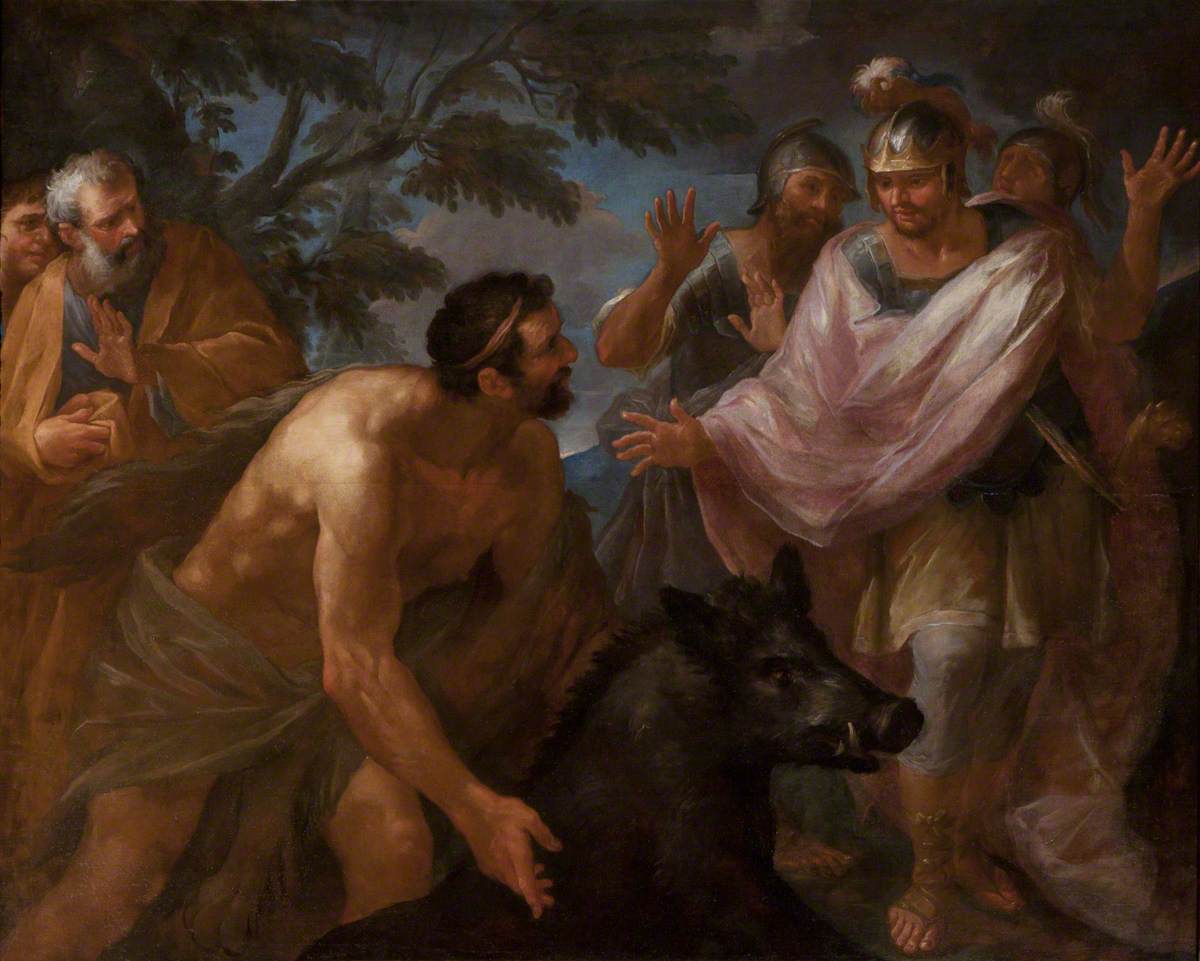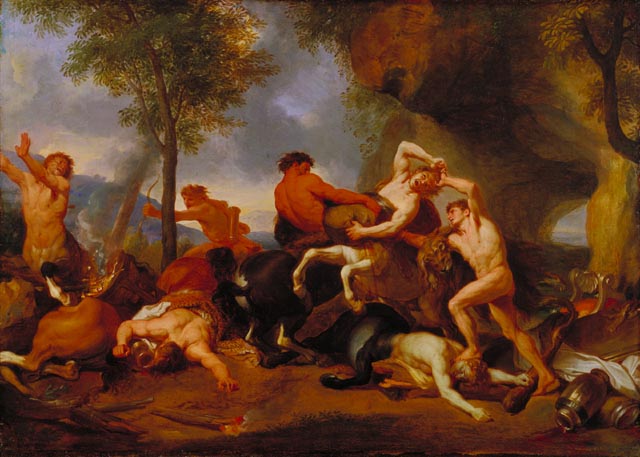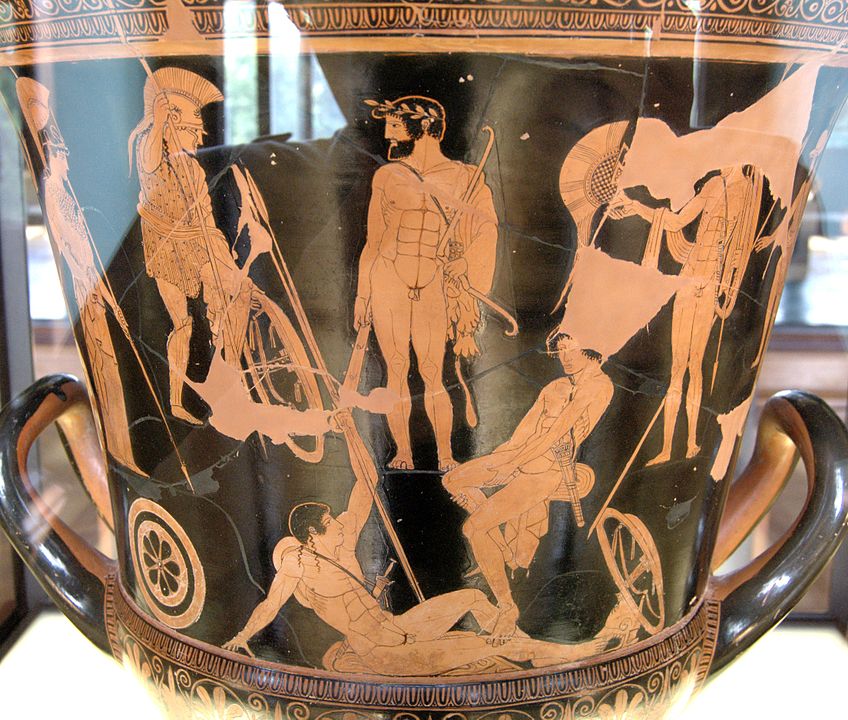Heracles and the Boar of Erymanthos
Heracles and the Boar of Erymanthos: A Battle Between Man and Beast in Mythology
Mount Erymanthos, located on the border of Arcadia and Elis, was inhabited by a fearsome boar known as the "Boar of Erymanthos." This wild boar was enormous, with terrifying tusks, and caused great damage to farmers by destroying their crops. Many hunters tried to kill it, but they failed, and many of them met a tragic end at the boar's tusks.
Eurystheus, choosing the Erymanthian Boar for Heracles' fourth labor, asked him to bring it alive to Tiryns to prove that he had defeated it. He knew it would be easy for Heracles to kill it with arrows or with his club, but he required it to be captured alive. Thus, Eurystheus planned a trap, knowing that the boar would resist and try to kill him.
Heracles set off on his journey to Mount Erymanthos, leaving Tiryns, and it took him several days to arrive there. As he crossed one of the dense forests of the mountain, he encountered some Centaurs, creatures with the upper body of a human and the lower body of a horse, who lived there. It was known that the Centaurs hated humans.

Eurystheus had devised this trap, knowing that Heracles would encounter the fearsome Centaurs on his way. He believed that Heracles would not survive and that the Boar would kill him, just as it had done with many others who had fallen victim to it.
However, in this case, Eurystheus failed again. This was because a Centaur named Pholus was happy to host Heracles in his cave. He took care to roast meat for his guest over the fire, whereas Heracles had been eating it raw until then. At the edge of the cave, there was a jar filled with fragrant wine. They opened the jar and began to drink. The smell of the wine was so strong that the other Centaurs heard it and came running to drink as well. Due to the lack of wine, the Centaurs, enraged, decided to kill Pholus and Heracles. Thus, a fierce battle ensued between them. Heracles managed to defeat the Centaurs, but accidentally killed his friend Pholus with a poisoned arrow from the blood of the Hydra.

The next day, at dawn, Heracles buried Pholus and set out to find the dangerous boar. He had to search for several hours until, on a snowy slope, he managed to spot the tracks of the wild boar. Following them, he soon came face to face with it. The Erymanthian Boar, realizing Heracles was near, tried to escape, but our hero, holding a rope, skillfully threw it and with a deft grip, tightly restrained the boar by its head. The noose tightened around its neck, keeping it immobile. Thus, Heracles, binding the boar’s legs as well, carried it on his back and began his journey back to Tiryns.
A few days later, when Eurystheus saw Heracles arrive at the palace with the boar on his shoulder, he couldn't believe his eyes. Once again, Heracles had escaped danger. Once again, his luck had helped him.
During this period, it is said that Hercules participated in the Jason and the Argonauts expedition, where most of the heroes of the time gathered under the leadership of Jason. However, due to Hercules' divine weight, the Argo was delayed in its voyage, and his companions decided to abandon him in Asia Minor. Some other myths claim that on the shores of Mysia, Hylas, a friend of Hercules, went to fetch water. There, however, he was lured away by the water nymphs and disappeared into the depths of a spring. Hercules was desperate, searching everywhere to find him, but to no avail. The Argonauts were forced to leave the hero behind and continue their journey without him.
